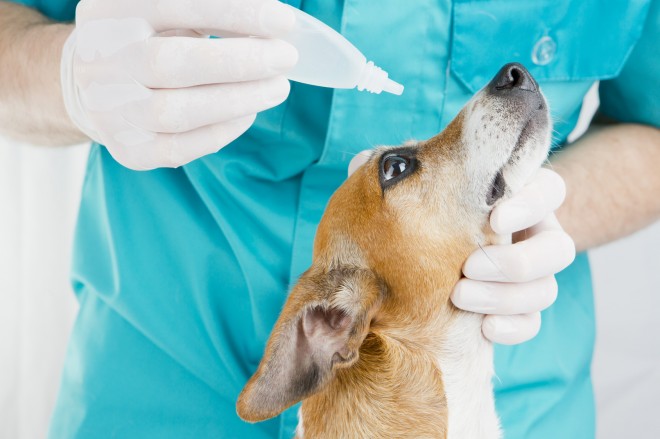

Conjunctivitis is a condition of the eye that a whole range of animals can be prone to, including cats, dogs and people. Some dogs seem to have particularly sensitive eyes and be more prone to developing problems such as conjunctivitis than others, and suffer from recurrent flare-ups of the condition throughout their lives. Conjunctivitis can be caused by a variety of different things, and can affect either both eyes, or just one.
If your dog is prone to recurrent conjunctivitis and you are wondering if there is any way to prevent or reduce the chances of future flare-ups, we will look at the reasons for the condition in more detail within this article. Read on to learn more.
Conjunctivitis is a condition that affects the membrane of the eyes, called the conjunctiva. The conjunctiva lines the inside of the eyelids and also covers the eyeball. It is a moist layer that helps to keep the eye tissue lubricated and elastic, and also helps to protect the delicate eye tissue against irritants and foreign bodies.
When the conjunctiva becomes irritated and inflamed for any reason, conjunctivitis can be introduced as an infection that affects the membrane itself, leading to redness, soreness and a sticky discharge from the eyes.
There are a multitude of different ways in which the conjunctiva can become irritated and inflamed, and anything that causes this to happen can potentially lead to conjunctivitis. As such, there are a whole variety of different ways in which conjunctivitis can be introduced to the eye or caused to flare up, including:
It is usually fairly obvious when something is amiss with your dog’s eyes, and the symptoms of conjunctivitis are not hard to spot. Identifying what type of conjunctivitis is present can be more challenging!
First of all, the eyes take on a distinctly red or pink appearance, looking swollen and inflamed around the mucous membranes, making them more prominent and sore-looking. The eyes generally weep constantly, and the eyes will usually be gummy, crusty, and may close up when asleep.
If the discharge from the eye is clear, this is usually due to an allergenic cause. A yellowy or greenish looking discharge usually indicates a bacterial infection.
The cause of the conjunctivitis is the key to treatment, and bacterial infections will usually call for antibiotic eye drops, or possibly oral medication. Allergies are best managed with antihistamines, and managing exposure to the allergenic triggers. As always, finding out the cause of the problem is important, both in resolving the immediate problem and in preventing or reducing the chances of later problems.
Some dogs are prone to flare-ups of conjunctivitis, or the condition quickly spreading from one eye to the other. While conjunctivitis is not a fatal or serious condition in and of itself, it is uncomfortable and sore for your dog, and may obscure their vision. If their eyes are irritated and they scratch and paw at them a lot, they can also cause further damage and other problems too.
If your dog seems to be prone to flare-ups or recurrent bouts of conjunctivitis, it is important to look at the different elements of your dog’s lifestyle, and identify what may be causing it.
Copyright © 2005-2016 Pet Information All Rights Reserved
Contact us: www162date@outlook.com